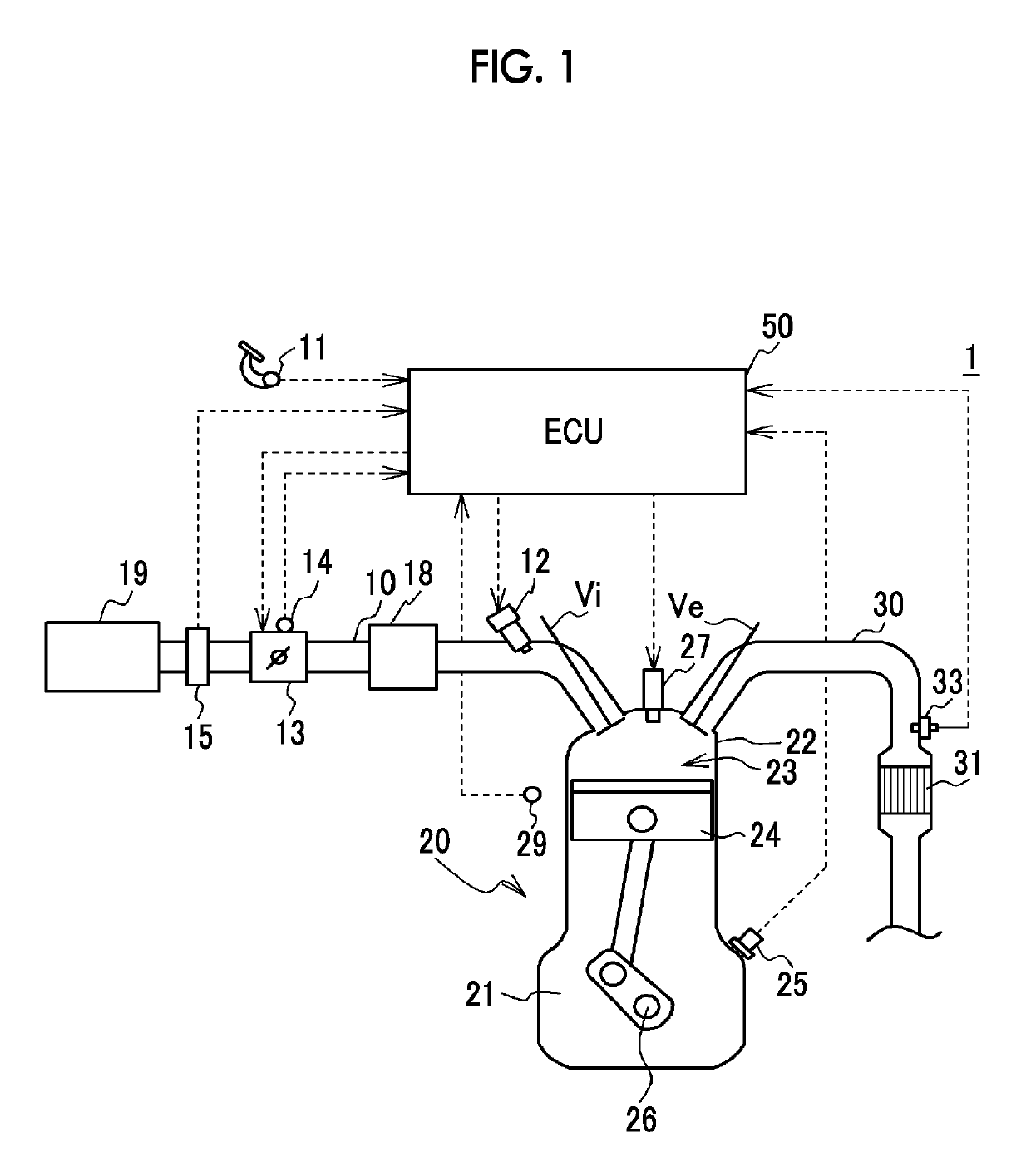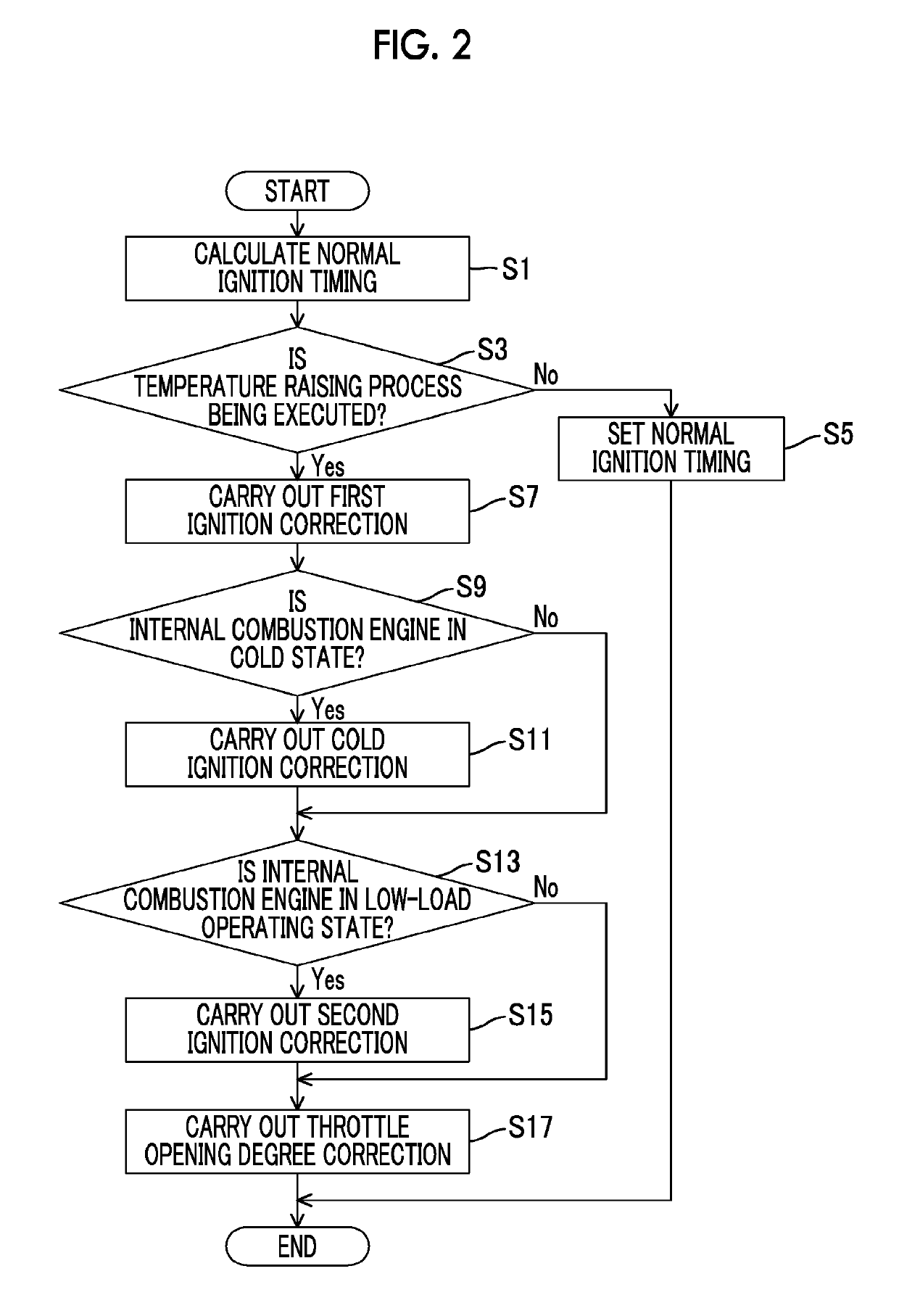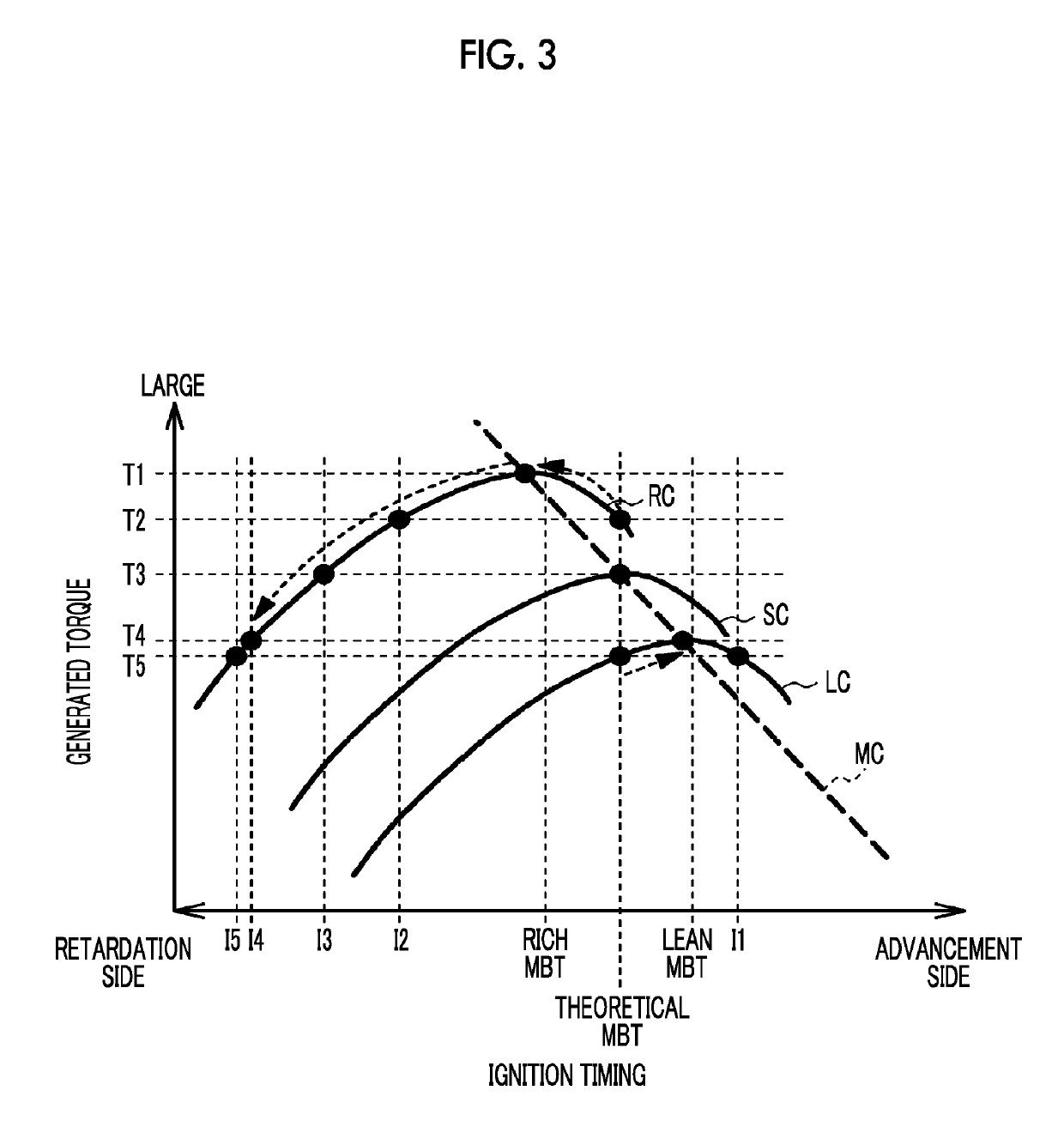Control apparatus for internal combustion engine
a control apparatus and internal combustion engine technology, applied in the direction of electric control, ignition automatic control, machines/engines, etc., can solve the problems of deterioration in fuel economy deterioration in drivability, etc., to suppress the deterioration in drivability of the vehicle and the effect of fuel economy deterioration
- Summary
- Abstract
- Description
- Claims
- Application Information
AI Technical Summary
Benefits of technology
Problems solved by technology
Method used
Image
Examples
Embodiment Construction
[0027]FIG. 1 is a schematic configuration view of a vehicle 1. The vehicle 1 is mounted with an internal combustion engine (hereinafter referred to as an engine) 20 as a motive power source for running, and is also mounted with a three-way catalyst 31 that purifies exhaust gas from the engine 20. In the engine 20, an air-fuel mixture is burned in a combustion chamber 23 of a cylinder head 22 that is arranged on an upper portion of a cylinder block 21, and a piston 24 is thereby moved in a reciprocating manner. The engine 20 is an in-line four-cylinder engine having four cylinders, but is not limited thereto as long as it has a plurality of cylinders.
[0028]An intake valve Vi that opens / closes an intake port, and an exhaust valve Ve that opens / closes an exhaust port are provided for each of the cylinders in the cylinder head 22 of the engine 20. Besides, an ignition plug 27 for igniting the air-fuel mixture in the combustion chamber 23 is attached to a top portion of the cylinder head...
PUM
 Login to View More
Login to View More Abstract
Description
Claims
Application Information
 Login to View More
Login to View More - R&D
- Intellectual Property
- Life Sciences
- Materials
- Tech Scout
- Unparalleled Data Quality
- Higher Quality Content
- 60% Fewer Hallucinations
Browse by: Latest US Patents, China's latest patents, Technical Efficacy Thesaurus, Application Domain, Technology Topic, Popular Technical Reports.
© 2025 PatSnap. All rights reserved.Legal|Privacy policy|Modern Slavery Act Transparency Statement|Sitemap|About US| Contact US: help@patsnap.com



